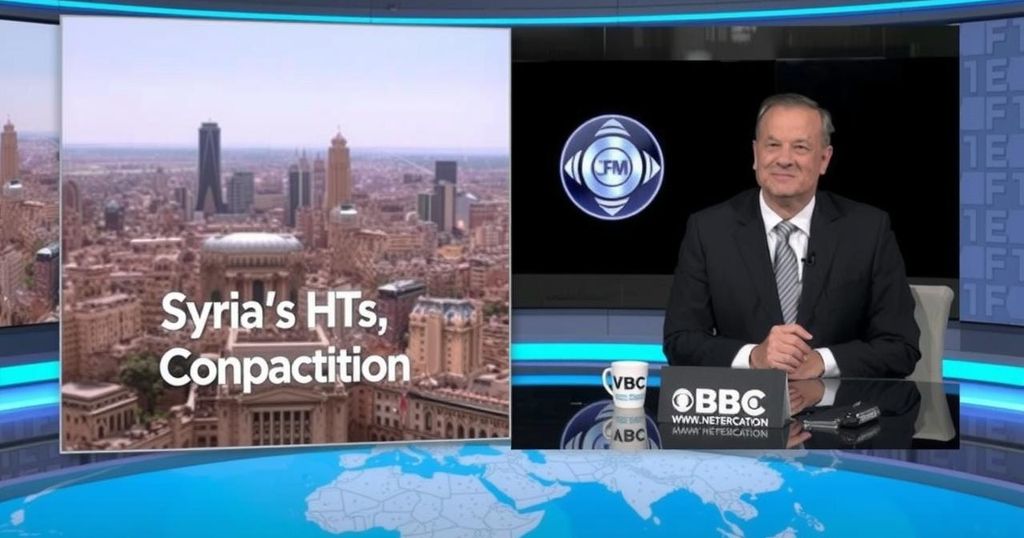Ahmed al-Sharaa, the leader of Hayat Tahrir al-Sham, declares Syria is war-weary and poses no threat to neighbors or the West, advocating for the lifting of sanctions and the de-listing of HTS as a terrorist organization. He emphasizes HTS’s victimhood under Assad’s regime and discusses the distinct cultural identity of Syria compared to Afghanistan, asserting a commitment to women’s education. Despite his optimistic stance, doubts remain among Syrians about HTS’s intentions.
In a recent interview with the BBC conducted in Damascus, Ahmed al-Sharaa, the de facto leader of Syria, emphasized that the nation is fatigued from prolonged conflict and poses no threat to neighboring countries or the West. Sharaa, who recently orchestrated a swift campaign that led to the overthrow of Bashar al-Assad’s regime, advocates for the lifting of sanctions against Syria. He currently leads the Hayat Tahrir al-Sham (HTS), a prominent faction in the rebel alliance, previously known by his pseudonym Abu Mohammed al-Jolani.
Sharaa contends that HTS should be removed from the list of designated terrorist organizations. Despite being classified as such by various bodies, including the UN and US, he asserts that HTS has distanced itself from its past affiliation with al-Qaeda, having disengaged from the group in 2016. He firmly argues that they do not target civilians, describing HTS as victims of the Assad regime’s violence.
When discussing concerns that he might model Syria after Afghanistan, Sharaa insisted on the unique cultural contexts of both countries, noting that Syria is not a tribal society and advocating for women’s education. His demeanor during the interview was described as calm and reassuring, aiming to alleviate concerns regarding HTS’s previous extremist activities. Nonetheless, skepticism remains among many Syrians regarding his intentions moving forward, as the forthcoming actions of Syria’s new governance will ultimately reveal the desired direction for the country.
The backdrop of this discussion is the ongoing conflict in Syria, which has witnessed a dramatic shift in power dynamics in recent weeks. Following a swift offensive, the leadership of Ahmad al-Sharaa and Hayat Tahrir al-Sham (HTS) has become more prominent. HTS emerged as a key player in the Syrian conflict after breaking away from al-Qaeda in 2016. The international community, including the United Nations and Western nations, continues to classify HTS as a terrorist entity due to its origins and historical actions during the conflict. As the situation in Syria evolves, understanding the implications of HTS’s current stance and Sharaa’s leadership is crucial for regional stability and international relations.
In conclusion, Ahmed al-Sharaa’s assertions during his interview with the BBC convey his vision for a post-conflict Syria that seeks to distance itself from its prolonged history of violence. His call for the removal of sanctions and reclassification of HTS challenges prevailing narratives surrounding the group and its potential role in Syria’s future governance. As skepticism persists among the populace, the next steps taken by Sharaa and HTS will significantly influence both domestic stability and international perceptions of Syria’s current leadership.
Original Source: www.bbc.co.uk







